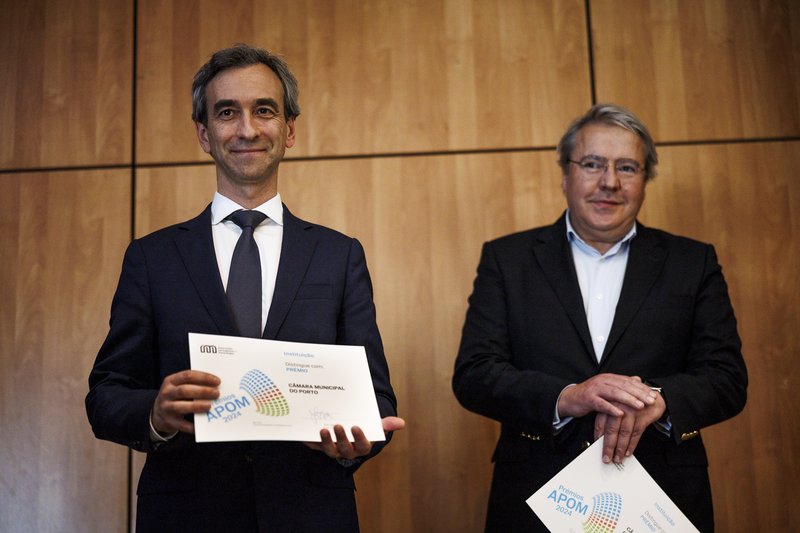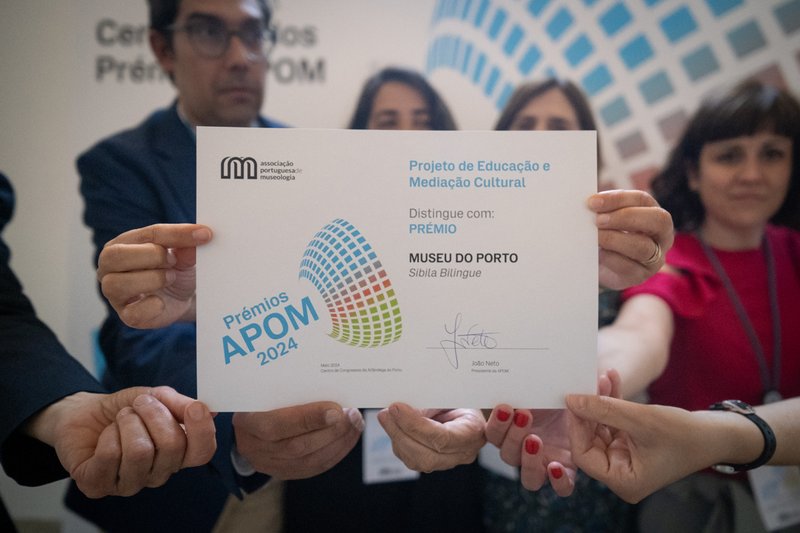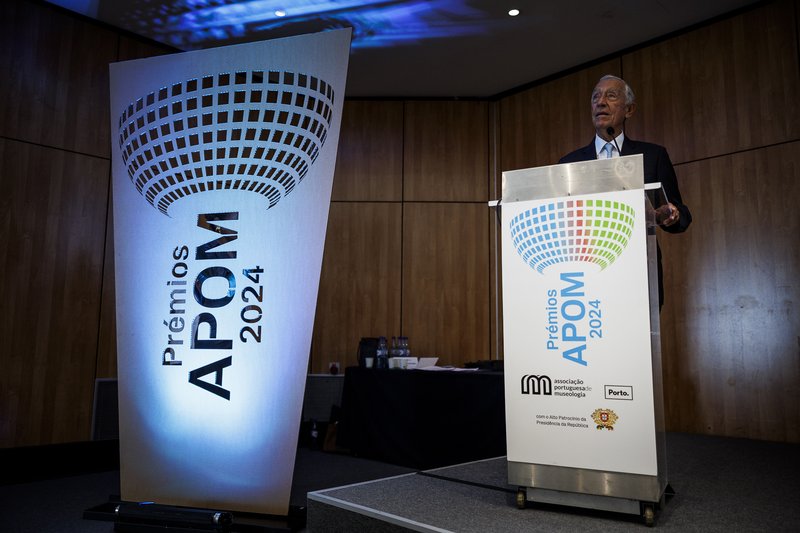Municipality of Porto honoured as best institution in Museology awards
Article
The Municipality of Porto was recognised as the best institution for supporting museums, palaces, monuments, archaeological sites, interpretation centres and visitable collections in museum activities. The award from the Portuguese Museology Association (APOM) was received by the Deputy Mayor at a ceremony attended by the President of the Republic.
In his speech, Filipe Araújo, who attended the ceremony on behalf of the Mayor of Porto, Rui Moreira, stressed that culture is a priority for the municipality and recalled the 'innovative and forward-looking museum policy' that the municipality has been pursuing, moving away from the 'rigid, passive and decontextualised conservation logic'.
'A contemporary museum proposal, such as the one we advocate, should promote the full interpretation of the meanings and significance of monuments, archives and collections', said the Deputy Mayor, adding that this is achieved through research, editing, programming and curatorship, but also with 'greater interaction with the different audiences', turning the spaces into 'centres of knowledge and co-creation'.

Filipe Araújo, who received the 2024 Institution Award from the president of APOM, João Neto, also emphasised the municipality's commitment to refurbishing the museum buildings under its remit, opening new spaces such as the Reservoir or the Old City Hall, but also renewing museographies and conservation.
'The corollary of all this', he said, 'is the Porto Museum project, with which we are valorising the city's historical heritage in light of the concepts and perspectives of the present time', he said at the session that took place late Friday afternoon at the Alfândega Porto Congress Centre.
In the words of the Deputy Mayor, the programme 'combines enjoyment with knowledge, the artistic dimension with the discovery of the city, the meeting of audiences with the promotion of reflection and debate'.
'This is the path we will continue to follow. With the same desire to promote the inclusion and diversity of audiences, we are working to extend our museum strategy to the eastern part of the city', he concluded.
'Sibila Bilingue' is the best Education and Cultural Mediation Project
In addition to the Institution Award, the municipality's work was also acknowledged with the Education and Cultural Mediation Project Award for 'Sibila Bilingue'. The project began by collecting the voices and stories of residents from more than half a hundred nationalities who make Porto pulse.
From there, the creation of poetry and songs began, which were opened to the public still unfinished, in a kind of open rehearsal, with two public performances: the first at the Biblioteca Pública de Pedro Ivo libra and the second at the Guerra Junqueiro Museum.

In these sessions it was possible to appreciate the results of a first year of work, in which four young Portuguese poets met with five groups: the Roma, Brazilian, African, Asian (from the Indian subcontinent) and Eastern European communities. The aroma of these voices was the result of community activations by António Ribeiro. The poems by Francisca Camelo, Gisela Casimiro and Miguel-Manso underwent the compositional invention of José Valente and were extended to the improbable ensemble of musicians from the Portuguese Philharmonic Orchestra. Rui Spranger gave voice to the poems read.
'Sibila Bilingue' was designed and directed by Marta Bernardes, who is in charge of the Porto Museum's mediation and education programmes. This initiative was developed in collaboration with the Porto City Council's Social Work department and community social mediators. It continues this year, with presentations planned for the last quarter of the year.

Porto also won the Best Museum award, which Marcelo Rebelo de Sousa presented to the Soares dos Reis National Museum. The award honours the best museum inaugurated or substantially renovated in the last two years in terms of 'building collections that represent local, regional or national identity', 'contributing to research and social development and environmental balance' or 'promoting education and training for different social groups in all age groups'.